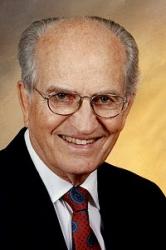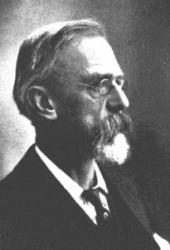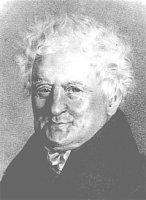Planning worship?
Check out our sister site, ZeteoSearch.org,
for 20+ additional resources related to your search.
- |
User Links
Person Results
Anonymous
Person Name: Anon. Author of "Thy Broken Body, Gracious Lord" in The Church Hymnal In some hymnals, the editors noted that a hymn's author is unknown to them, and so this artificial "person" entry is used to reflect that fact. Obviously, the hymns attributed to "Author Unknown" "Unknown" or "Anonymous" could have been written by many people over a span of many centuries.
Anonymous
Lowell Mason

1792 - 1872 Composer of "ERNAN" in The Church Hymnal Dr. Lowell Mason (the degree was conferred by the University of New York) is justly called the father of American church music; and by his labors were founded the germinating principles of national musical intelligence and knowledge, which afforded a soil upon which all higher musical culture has been founded. To him we owe some of our best ideas in religious church music, elementary musical education, music in the schools, the popularization of classical chorus singing, and the art of teaching music upon the Inductive or Pestalozzian plan. More than that, we owe him no small share of the respect which the profession of music enjoys at the present time as contrasted with the contempt in which it was held a century or more ago. In fact, the entire art of music, as now understood and practiced in America, has derived advantage from the work of this great man.
Lowell Mason was born in Medfield, Mass., January 8, 1792. From childhood he had manifested an intense love for music, and had devoted all his spare time and effort to improving himself according to such opportunities as were available to him. At the age of twenty he found himself filling a clerkship in a banking house in Savannah, Ga. Here he lost no opportunity of gratifying his passion for musical advancement, and was fortunate to meet for the first time a thoroughly qualified instructor, in the person of F. L. Abel. Applying his spare hours assiduously to the cultivation of the pursuit to which his passion inclined him, he soon acquired a proficiency that enabled him to enter the field of original composition, and his first work of this kind was embodied in the compilation of a collection of church music, which contained many of his own compositions. The manuscript was offered unavailingly to publishers in Philadelphia and in Boston. Fortunately for our musical advancement it finally secured the attention of the Boston Handel and Haydn Society, and by its committee was submitted to Dr. G. K. Jackson, the severest critic in Boston. Dr. Jackson approved most heartily of the work, and added a few of his own compositions to it. Thus enlarged, it was finally published in 1822 as The Handel and Haydn Society Collection of Church Music. Mason's name was omitted from the publication at his own request, which he thus explains, "I was then a bank officer in Savannah, and did not wish to be known as a musical man, as I had not the least thought of ever making music a profession." President Winchester, of the Handel and Haydn Society, sold the copyright for the young man. Mr. Mason went back to Savannah with probably $500 in his pocket as the preliminary result of his Boston visit.
The book soon sprang into universal popularity, being at once adopted by the singing schools of New England, and through this means entering into the church choirs, to whom it opened up a higher field of harmonic beauty. Its career of success ran through some seventeen editions. On realizing this success, Mason determined to accept an invitation to come to Boston and enter upon a musical career. This was in 1826. He was made an honorary member of the Handel and Haydn Society, but declined to accept this, and entered the ranks as an active member. He had been invited to come to Boston by President Winchester and other musical friends and was guaranteed an income of $2,000 a year. He was also appointed, by the influence of these friends, director of music at the Hanover, Green, and Park Street churches, to alternate six months with each congregation. Finally he made a permanent arrangement with the Bowdoin Street Church, and gave up the guarantee, but again friendly influence stepped in and procured for him the position of teller at the American Bank.
In 1827 Lowell Mason became president and conductor of the Handel and Haydn Society. It was the beginning of a career that was to win for him as has been already stated the title of "The Father of American Church Music." Although this may seem rather a bold claim it is not too much under the circumstances. Mr. Mason might have been in the average ranks of musicianship had he lived in Europe; in America he was well in advance of his surroundings. It was not too high praise (in spite of Mason's very simple style) when Dr. Jackson wrote of his song collection: "It is much the best book I have seen published in this country, and I do not hesitate to give it my most decided approbation," or that the great contrapuntist, Hauptmann, should say the harmonies of the tunes were dignified and churchlike and that the counterpoint was good, plain, singable and melodious.
Charles C. Perkins gives a few of the reasons why Lowell Mason was the very man to lead American music as it then existed. He says, "First and foremost, he was not so very much superior to the members as to be unreasonably impatient at their shortcomings. Second, he was a born teacher, who, by hard work, had fitted himself to give instruction in singing. Third, he was one of themselves, a plain, self-made man, who could understand them and be understood of them."
The personality of Dr. Mason was of great use to the art and appreciation of music in this country. He was of strong mind, dignified manners, sensitive, yet sweet and engaging.
Prof. Horace Mann, one of the great educators of that day, said he would walk fifty miles to see and hear Mr. Mason teach if he could not otherwise have that advantage.
Dr. Mason visited a number of the music schools in Europe, studied their methods, and incorporated the best things in his own work. He founded the Boston Academy of Music. The aim of this institution was to reach the masses and introduce music into the public schools. Dr. Mason resided in Boston from 1826 to 1851, when he removed to New York. Not only Boston benefited directly by this enthusiastic teacher's instruction, but he was constantly traveling to other societies in distant cities and helping their work. He had a notable class at North Reading, Mass., and he went in his later years as far as Rochester, where he trained a chorus of five hundred voices, many of them teachers, and some of them coming long distances to study under him. Before 1810 he had developed his idea of "Teachers' Conventions," and, as in these he had representatives from different states, he made musical missionaries for almost the entire country. He left behind him no less than fifty volumes of musical collections, instruction books, and manuals.
As a composer of solid, enduring church music. Dr. Mason was one of the most successful this country has introduced. He was a deeply pious man, and was a communicant of the Presbyterian Church. Dr. Mason in 1817 married Miss Abigail Gregory, of Leesborough, Mass. The family consisted of four sons, Daniel Gregory, Lowell, William and Henry. The two former founded the publishing house of Mason Bros., dissolved by the death of the former in 1869. Lowell and Henry were the founders of the great organ manufacturer of Mason & Hamlin. Dr. William Mason was one of the most eminent musicians that America has yet produced.
Dr. Lowell Mason died at "Silverspring," a beautiful residence on the side of Orange Mountain, New Jersey, August 11, 1872, bequeathing his great musical library, much of which had been collected abroad, to Yale College.
--Hall, J. H. (c1914). Biography of Gospel Song and Hymn Writers. New York: Fleming H. Revell Company.
Lowell Mason
Samuel P. Tregelles
1813 - 1875 Author of "Thy Broken Body, Gracious Lord" in Hymns to the Living God Tregelles, Samuel Prideaux, LL.D., born of a Quaker, was born at Wodehouse Place, Falmouth, Cornwall, Jan. 20 (sometimes dated Jan. 30), 1813, and educated at the Falmouth Grammar School. From 1838 to 1844, he was employed in the Neath Abbey Iron Works. In 1836 he became a private tutor in Falmouth. His deep interest in biblical studies developed in an earnest desire to produce the most perfect edition of the Greek Testament it was possible to publish. The first specimens of his work were published in 1838, and the first instalments of his task for public use, in 1844. His Greek Testament thus begun was published in parts, Pt. vi. appearing in 1872. The work was hindered by his two attacks of paralysis (1861 and 1870); and the Prolegomena had to be added by Dr. Hort and A. W. Streane in 1879. Dr. Tregelles received a Civil List Pension for some years. He was one of the Revisers of the New Testament, but ill-health prevented him from taking an active part in the work. He died at Plymouth April 24, 1875. His hymn-writing began, so far as we can gather, before 1837, and extended to 1861 or later. The earliest were published in the Plymouth Brethren's Hymns for the Poor of the Flock, 1838; their Psalms, Hymns, and Spiritual Songs, 1842; and their Few Hymns and some Spiritual Songs, selected, 1856. Some also were contributed to Dr. P. Maurice's Church of England Choral Hymn-Book, 1861, in which they are marked as having been supplied in "MS." Some of those so marked were, however, in print before.
His hymns now in common use include the following, the date of each as given being that of the collection named in which it appeared:—
1. Father, we Thy children bless Thee. Thanksgiving for Divine Mercies; and the Second Advent (1838). In the Few Hymns of 1856, st. iv., v. were given as No. 310, "Father, 0 how vast the blessing."
2. Holy Saviour, we adore Thee. The Second Advent desired (1838).
3. Lord Jesus, we believing. Peace in Jesus (1861).
4. 0 God of grace, our Father. Praise for Meeting Grace (1856).
5. 0 look not on the Cross of Christ. Christ the One Oblation (1861).
6. The gloomy night will [shall] soon be past. Heaven anticipated (1842).
7. Thou God of grace, our Father. Praise for Meeting Grace (1838).
8. Thou, Lord of all, on earth hast dwelt. Passiontide (1861).
9. Thou, 0 God, Thy love commendest. Complete in Jesus (1861).
10. Thy Name alone, O Lord, we own, Jesus, our Strength and Safety (1861).
11. Thy Name we bless, Lord Jesus. Jesus, the Name over all (1838).
12. 'Tis sweet, 0 God, Thy praise to sing. The Sacrifice of Praise (1861).
13. 'Tis sweet to think of those at rest. The Dead in Christ; or, All Saints (1842).
14. 'Twas the Holy Ghost who taught us. Passiontide (1841 Appendix to Hymns for the Poor of the Flock).
15. Worthy the Lamb is now the song. Communion of Saints (1861).
The use of Dr. Tregelles's hymns is mainly confined to the Plymouth Brethren; and taken as a whole they are marked by no striking features of excellence.
-- John Julian, Dictionary of Hymnology (1907)
Samuel P. Tregelles
Wayne Hooper

1920 - 2007 Person Name: Wayne Hooper (1920- ) Composer of "JANICE" in Seventh-day Adventist Hymnal Born: July 4, 1920, Little Rock, Arkansas.
Died: February 28, 2007, at his home in Thousand Oaks, California.
Hooper sang baritone with the King’s Quartet group for 18 years, and arranged and composed music for the group for 33 years. He taught music at the Portland (Oregon) Academy and Union College, Lincoln, Nebraska; served as musical director of the Voice of Prophecy broadcast; directed development and marketing for Hosanna House; did arranging and orchestration for Chapel Records; was musical co-editor of the 1985 Seventh-day Adventist hymnal; and co-authored the Companion to the SDA Hymnal. Andrews and La Sierra Universities awarded honorary doctor of music degrees to him.
--www.hymntime.com/tch/
Wayne Hooper
William S. Bambridge

1842 - 1923 Person Name: Bambridge Composer of "PRAYER" in The Christian Hymnal
William S. Bambridge


 My Starred Hymns
My Starred Hymns



